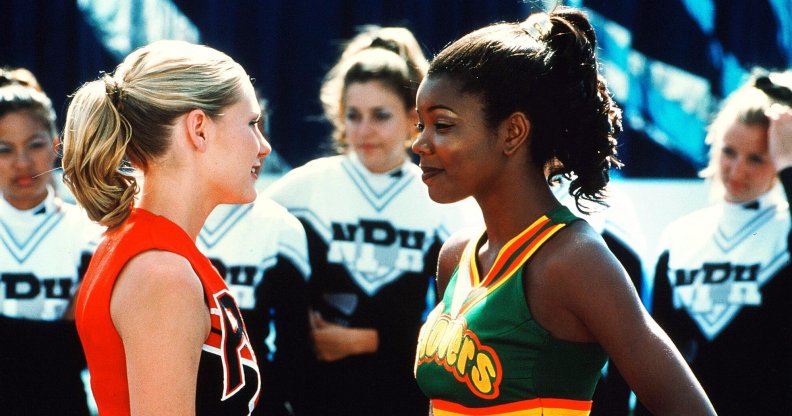Bring it On director would ‘probably’ approach homophobic slurs ‘in a different way’ today – but stands by including them

Still image from Bring It On
The director of teen classic Bring It On has said he would approach the film “in a different way” today while reflecting on its problematic use of anti-gay slurs, but stands by his reasoning for including them.
Bring It On, released in 2000, stars Kirsten Dunst, Gabrielle Union, Eliza Dushku and Jesse Bradford, and went on to spawn numerous sequels.
In many ways Bring It On has aged well, but its use of homophobic slurs in two separate scenes does not sit easy 20 years on.
The first homophobic slur is uttered by Missy, played by Dushku, while driving to a football game. The second occasion is arguably worse, with two football players calling male cheerleaders “f*gs”.
Reflecting on the film, director Peyton Reed told Insider that they were trying to examine sexuality and gender politics through the use of homophobic slurs.
Homophobic slurs in Bring It On were ‘intended to be hate speech’.
“When the football players are talking to Les and Jan and they use that word, it’s definitely hate speech – it’s intended to be hate speech,” Reed said.
“Then when Missy uses it in the car to talk as the new girl on the team, she’s kind of co-opting the language.”
He added: “If we were to make the movie today, it probably would be approached in a different way. A lot of things would.”
Bring It On was hugely popular when it was released in 2000, and grossed more than $90 million at the box office. It is now considered a cult classic.
The film spawned five direct-to-video sequels, with the latest – Bring It On: Worldwide Cheersmack – released in 2017.
The film’s overarching theme was ‘cultural appropriation’.
Aside from its use of homophobic slurs, Bring It On still garners praise today for its dissection of sexuality, race and privilege.
Peyton told Insider that the film’s overarching theme was “cultural appropriation”.
“In our movie, we are dealing with all these privileged characters,” he said. “The white cheerleading squad, they are bragging they are the five-time national champions.
“They are talking to the other cheerleading squad and saying, ‘That’s all right, that’s OK, you’re going to pump our gas someday.’ It’s not a likeable sentiment.
“But then they find out it’s all a fraud. So it’s about Kristen [Dunst]’s character, Torrance, taking her first steps into awareness.
“The idea that she’s starting to confront her white privilege, that’s very much there in the movie, and I feel like that’s aged very well.”

